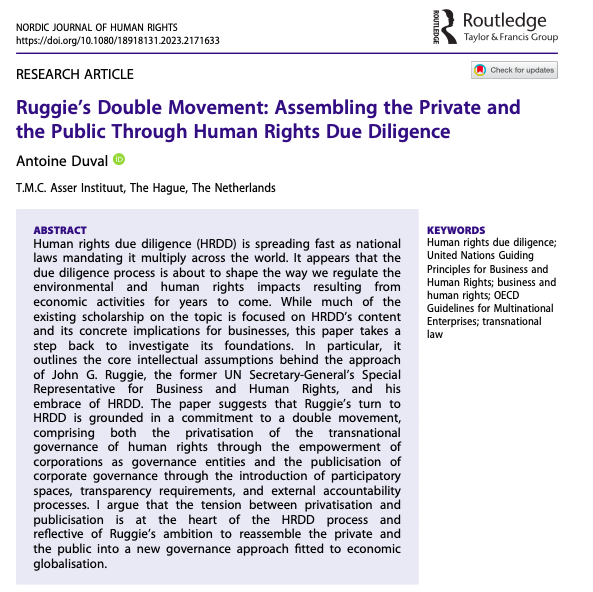
For EU #Sportslaw geeks, here is my short thread on the Opinion of AG @maciejszpunar and why its most important bit is not in the press release.
#EULaw #UEFA #HomegrownRule #Article165 #FreeMovement #Superleague
👇👇👇
#EULaw #UEFA #HomegrownRule #Article165 #FreeMovement #Superleague
👇👇👇
https://twitter.com/EUCourtPress/status/1633759259312771072
First an element of context, AG Szpunar is not any AG at the Court, but the 'First Advocate General'. His Opinion comes after the much noted and commented Opinion of AG Rantos in the #Superleague case.
The (most) interesting bit of his Opinion in my view relates to the interpretation of Article 165 TFEU and its relationship to the European Sports Model. (See paras 48-55).
These few paragraphs are a brutal rebuttal of AG Rantos' own very expansive interpretation of the same provision in the European #SuperLeague case.
I refer you to my thread then:
I refer you to my thread then:
https://twitter.com/Ant1Duval/status/1603422490973589504?s=20
Szpunar insists that Art. 165:
- is directed at the EU, not private entities (like UEFA)
- is 'soft law' and not a legal basis
- is not a provision having general application
- is directed at the EU, not private entities (like UEFA)
- is 'soft law' and not a legal basis
- is not a provision having general application
Surely,
- 'the political institutions of the EU are of course free to proclaim – in their wisdom – a European Sports Model on the basis of Art. 165 or elsewhere. This does not mean that functions incumbent on the EU institutions are outsourced in one way or another to UEFA.' [!]
- 'the political institutions of the EU are of course free to proclaim – in their wisdom – a European Sports Model on the basis of Art. 165 or elsewhere. This does not mean that functions incumbent on the EU institutions are outsourced in one way or another to UEFA.' [!]
And then boom:
'UEFA cannot obtain a blank cheque for the purposes of restrictions on the fundamental freedom of 45 TFEU by reference to 165 TFEU.'
'UEFA cannot obtain a blank cheque for the purposes of restrictions on the fundamental freedom of 45 TFEU by reference to 165 TFEU.'
This should be read as someone very senior/respected at the CJEU wanting to correct the course after the Rantos Opinion. I doubt that Rantos' audacious reading of 165 will survive the corrosive sarcasm & the 101 course on legal interpretation of Szpunar, but who knows.
To those who say this is a massive defeat for #UEFA, yes and no. It is attacking the pipe dream of a new sporting exception through the 165 TFEU backdoor, but at the same time it also endorses the rationale for a much stricter (club-based) UEFA homegrown rule.
The Court will referee this interpretative match between the two AGs, but my money is on AG Szpunar, Rantos' interpretation of Article 165 TFEU is really an unnecessary wild move (not unlike the Cosmas Opinion under Deliege for the connoisseur).
For those only interested in the #Superleague outcome, the CJEU could very well find in favour of UEFA/FIFA without endorsing Rantos' antics on 165 TFEU. The two are largely (but not entirely) disconnected.
If you read French and want to know more about the function of Article 165 TFEU in the relationship between #EULaw and sports governance, there is an extensive chapter on it in my PhD freely available at cadmus.eui.eu/bitstream/hand…
#Sportslaw #LexSportiva #Autonomy
#Sportslaw #LexSportiva #Autonomy
Might be of interest to @DrBorjaGarcia @MaduroPoiares @BenVanRompuy @eusportslaw @jlindholm @LawInSport @StevePeers @SportAndEU @CoralieFebvre.
• • •
Missing some Tweet in this thread? You can try to
force a refresh






